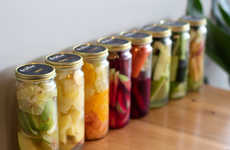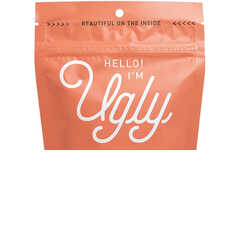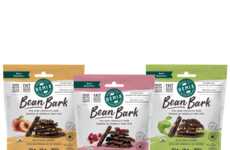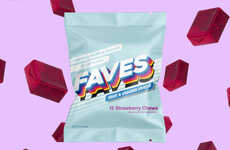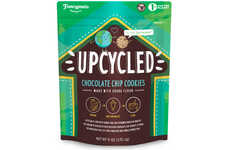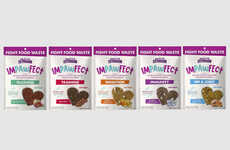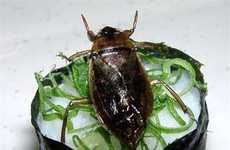
Nepurée Makes Juice and Food From Rejected Produce
References: web-japan.org
The concept is inspired by the Japanese word “mottainai†which means “what a waste!†and the eagerness to reduce waste food. Under the brand name Nepurée, the product includes juices, foods and desserts. These products are made from fruits and vegetables which are rejected from stores because they are deformed or bruised. So yes, it isn't really 'recycled' food, but you get the point.
“The new shape of vegetables†is the message from the manufacturer, Vegetech Co. and its partner, Kanto Orto Co. This is a trend that making use of discarding fruits and vegetables. Intense heat is applied to fruits and vegetable for a short period of time. No cutting instruments are used to preserve the nutrition. Then the next step is to blend fruits and vegetables and make them into the purée form. Their products become the attractive nutritional supplements.
“The new shape of vegetables†is the message from the manufacturer, Vegetech Co. and its partner, Kanto Orto Co. This is a trend that making use of discarding fruits and vegetables. Intense heat is applied to fruits and vegetable for a short period of time. No cutting instruments are used to preserve the nutrition. Then the next step is to blend fruits and vegetables and make them into the purée form. Their products become the attractive nutritional supplements.
Trend Themes
1. Reducing Food Waste - Creating products from rejected fruits and veggies is a trend that promotes sustainability and resourcefulness, and could lead to innovative ways to reduce food waste.
2. Value Added Products - Turning otherwise unmarketable fruits and vegetables into a range of products such as juices, foods, and desserts can create new revenue streams and disruptive innovation opportunities in the food industry.
3. Alternative Nutrition Sources - Using purées made from rejected fruits and vegetables can generate innovative approaches to alternative nutrition sources that are not only sustainable but also affordable for a broader consumer audience.
Industry Implications
1. Food and Beverage - The food and beverage industry can adopt the trend of using rejected produce to create innovative products, reducing waste, and increasing profits.
2. Agriculture - The agriculture industry can explore the trend of developing alternative markets for crops that may be unsellable in traditional markets, such as developing partnerships to create value-added products like Nepurée.
3. Sustainability - Cross-industry collaborations that focus on innovative sustainability solutions are emerging, and adding value to rejected fruits and vegetables through Nepurée products aligns with this trend.
1.8
Score
Popularity
Activity
Freshness


